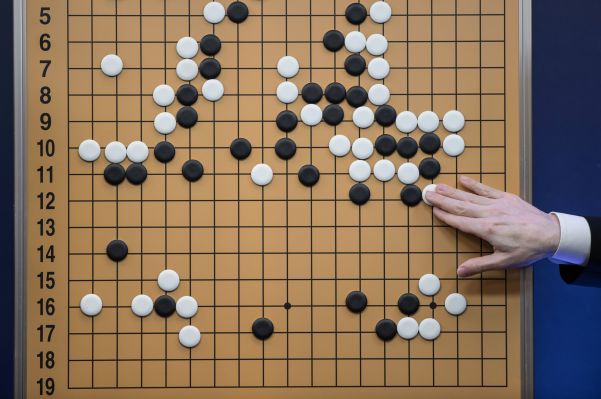Pokémon GO might have been the most talked about “Go” game of 2016, but the world of AI remains fixated on another Go — AlphaGo.
Last spring, Go-playing AI AlphaGo made headlines when it defeated world champion Lee Sedol. Now AlphaGo is in the news for another reason. DeepMind’s freak of computing has been anonymously vanquishing the world’s top Go players online.
A mysterious Go player, only referred to as “Master” on the internet, had been causing a stir for days, confusing top Go players with its unusual play. The style of gameplay led many to speculate that the stealthy player was not human, and perhaps even a reincarnation of AlphaGo.
All of this was confirmed in a tweet from DeepMind’s CEO Demis Hassabis.
For thousands of years, humans have sharpened their Go skills by studying human players. Putting a computer into the equation changes everything. Strategies that appear flawed on paper to game experts can actually disorient human masters.
One thing AlphaGo did have going in its favor was speed. The matches were played at a rapid pace, providing little time to sort out these unexpected moves.
Hassabis noted that the updated AlphaGo would be returning to play official, full-length matches later in the year. It’s clear that, leading up to those matches, humans will be on the defensive.
With a streak of 60 wins and the defeat of reigning Go champion Ke Jie, DeepMind’s AlphaGo is making the same mark on the game of Go that IBM’s Deep Blue made on chess. After Kasparov lost to IBM’s creation, humans created Arimaa, a modification of chess designed to stump computers and give humans the edge. This time, humans are equally stunned, but perhaps less resistant.
From an AI perspective, DeepMind’s accomplishment can be interpreted as something of a social experiment — a hyper-Turing test, so to speak. On one hand, it was clear that AlphaGo could at least play toe to toe with human players. It’s also true that such an imposing winning streak would draw attention and accusations of being inhuman.
But somehow the feat still manages to be impressive in the way that it’s making humans question themselves. Even if humans are quickly losing their grip on the game of Go, there’s a lesson hidden somewhere in the carnage — taking humans out of the loop, even for a brief amount of time, can teach us new ways to approach problems created by millennia of closed-mindedness.
